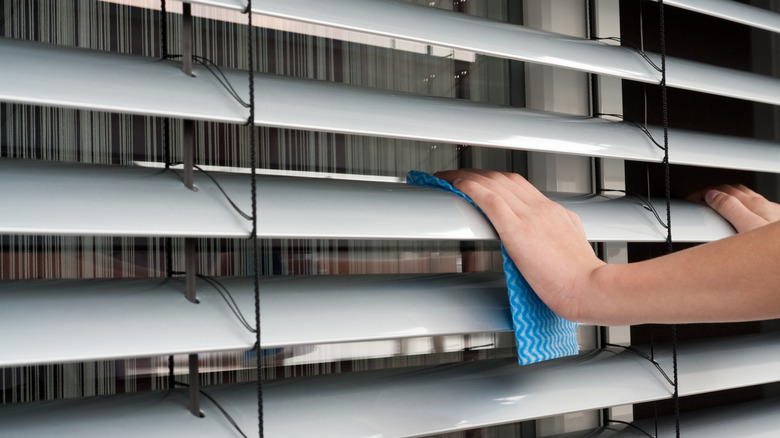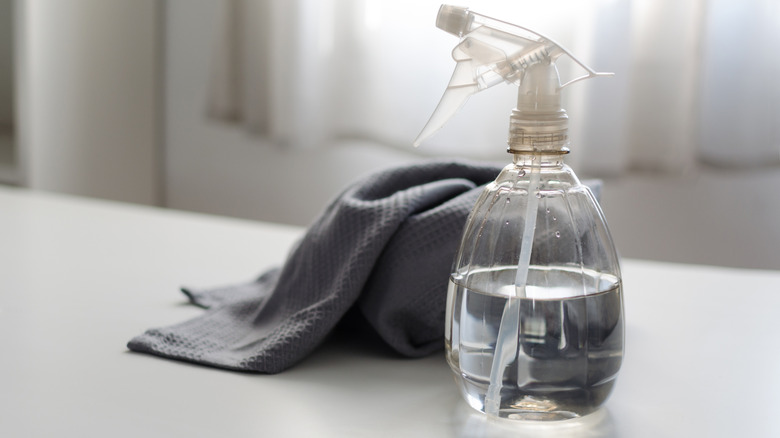How To Easily Get Squeaky Clean Blinds With One Cheap Kitchen Ingredient
Dusty, dirty blinds can make even the cleanest home look neglected, but you do not need expensive specialty cleaners to restore them. The easiest way to clean your window blinds is likely already in your pantry: white vinegar. This classic kitchen staple works well as a cleaning agent on blinds because of its acidic nature, which breaks down grime and kills bacteria and mold spores. Unlike harsh chemical cleaners that can leave streaks or damage material, vinegar provides a gentle, effective clean that is safe for most blind types when properly diluted. The acidity helps dissolve sticky buildup, and its natural deodorizing properties eliminate musty odors that can often accumulate on blinds.
Vinegar can remove oily fingerprints that gather on frequently opened windows and handle hard water stains with ease. It also works amazingly as a degreaser for homes with smokers or heavy cooking grease buildup. Knowing how often you need to clean your blinds is important, and when properly rinsed, vinegar should not leave behind sticky residue, which could actually attract more dust. This means your blinds will stay cleaner for longer. When mixed with warm water at a 1:1 ratio, you will get a cleaning solution that works without the need for heavy scrubbing, which could bend delicate blind slats.
Vinegar cleaning for spotless blinds
Vinegar is an incredibly versatile cleaning tool, and using it to clean your blinds will require slightly different approaches depending on the materials. For aluminum or vinyl horizontal blinds, start by closing them completely to expose the top of each slat where dust collects the most. Dip a microfiber cloth into your vinegar solution and run it carefully along each slat using a back-and-forth motion, flipping the cloth often to avoid redistributing dirt. Vertical blinds should be fully extended before using a top-to-bottom approach with your cloth, paying special attention to the weighted bottoms that collect the most grime.
If you have a fabric roller shade, this will require a little extra care. Lightly mist the vinegar solution onto a clean cloth and get a second cloth dampened with plain water. Do not rub with the vinegar cloth but blot any stains you see, then immediately dab with the plain water cloth to prevent rings.
It is not recommended to use vinegar to clean real wood blinds, but faux wood blinds are often made of PVC, so the solution can work, just be sure you know what your blinds are actually made of. With faux-wood, use a barely-damp vinegar solution and immediately dry each slat after cleaning. Regardless of material, always test your vinegar solution on a small inconspicuous area first and never use vinegar on natural stone windowsills as the acidity can etch into the surface. With these specific approaches, vinegar can keep your blinds looking new without harsh cleaners or expensive professional services.

